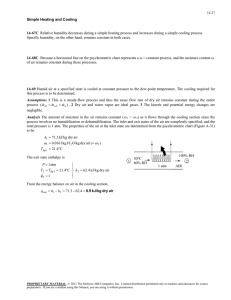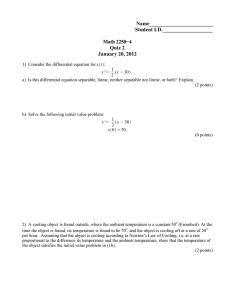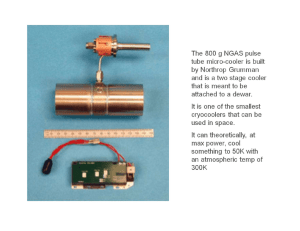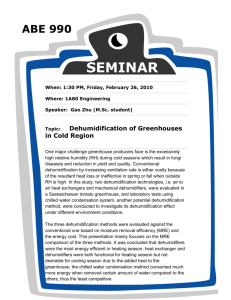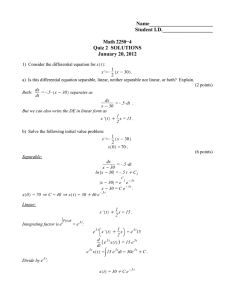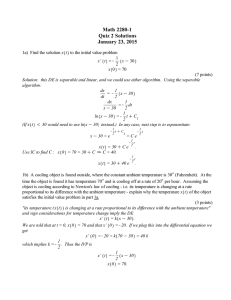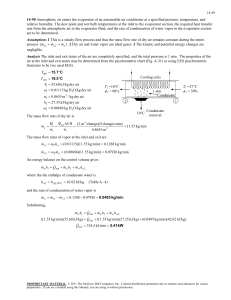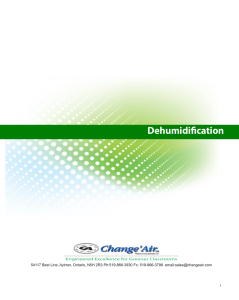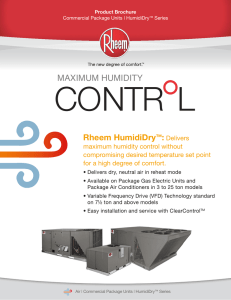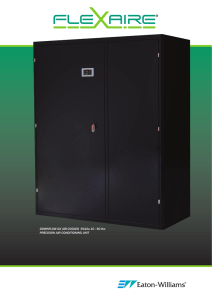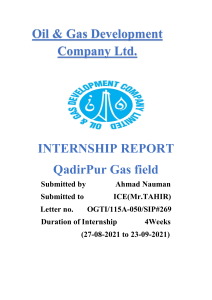cooling are to be determined. process 2
advertisement
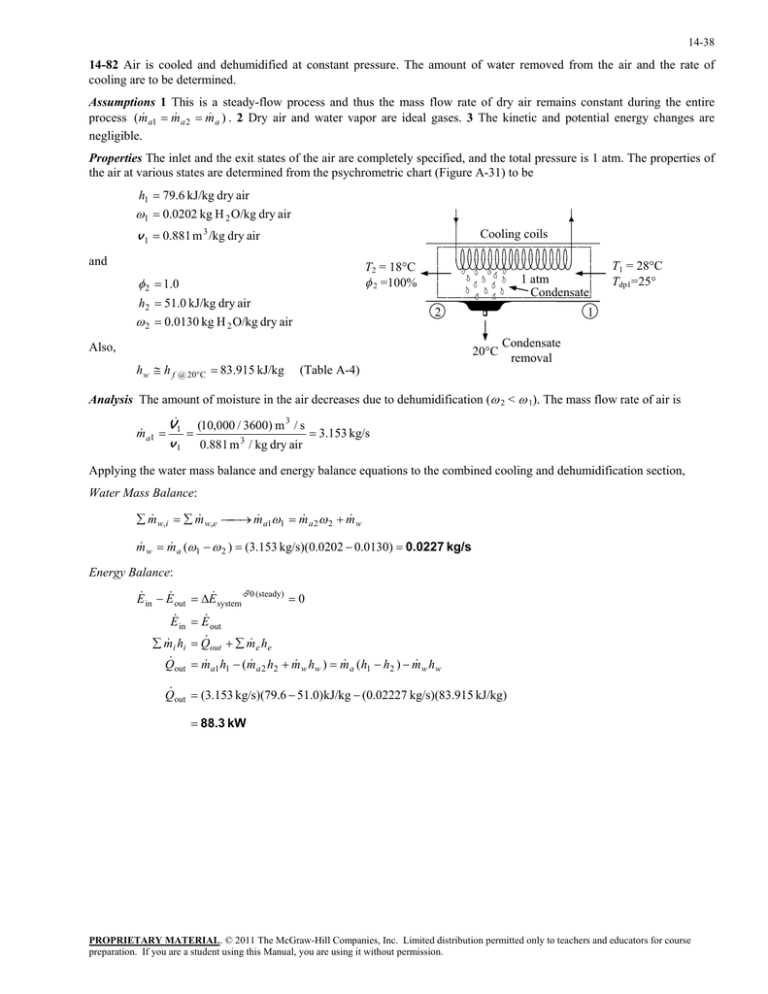
14-38 14-82 Air is cooled and dehumidified at constant pressure. The amount of water removed from the air and the rate of cooling are to be determined. Assumptions 1 This is a steady-flow process and thus the mass flow rate of dry air remains constant during the entire process (m a1 m a 2 m a ) . 2 Dry air and water vapor are ideal gases. 3 The kinetic and potential energy changes are negligible. Properties The inlet and the exit states of the air are completely specified, and the total pressure is 1 atm. The properties of the air at various states are determined from the psychrometric chart (Figure A-31) to be h1 79.6 kJ/kg dry air 1 0.0202 kg H 2 O/kg dry air v 1 0.881 m 3 /kg dry air Cooling coils and T2 = 18C 2 =100% 2 1.0 h2 51.0 kJ/kg dry air 1 atm Condensate 2 2 0.0130 kg H 2 O/kg dry air Also, 1 20C h w h f @ 20C 83.915 kJ/kg T1 = 28C Tdp1=25 Condensate removal (Table A-4) Analysis The amount of moisture in the air decreases due to dehumidification ( 2 < 1). The mass flow rate of air is m a1 V1 (10,000 / 3600) m 3 / s 3.153 kg/s v 1 0.881 m 3 / kg dry air Applying the water mass balance and energy balance equations to the combined cooling and dehumidification section, Water Mass Balance: m w,i m w,e m a11 m a 2 2 m w m w m a (1 2 ) (3.153 kg/s)(0.0202 0.0130) 0.0227 kg/s Energy Balance: E in E out E system 0 (steady) 0 E in E out m i hi Q out m e he Q out m a1 h1 (m a 2 h2 m w hw ) m a (h1 h2 ) m w h w Q out (3.153 kg/s)(79.6 51.0)kJ/kg (0.02227 kg/s)(83.915 kJ/kg) 88.3 kW PROPRIETARY MATERIAL. © 2011 The McGraw-Hill Companies, Inc. Limited distribution permitted only to teachers and educators for course preparation. If you are a student using this Manual, you are using it without permission.
